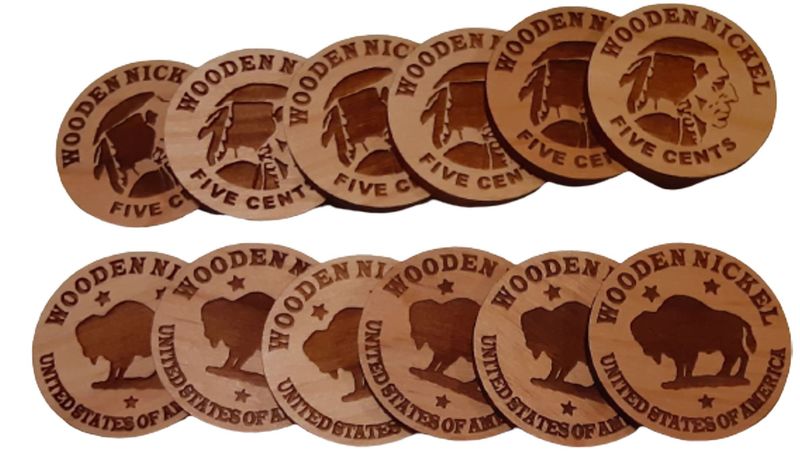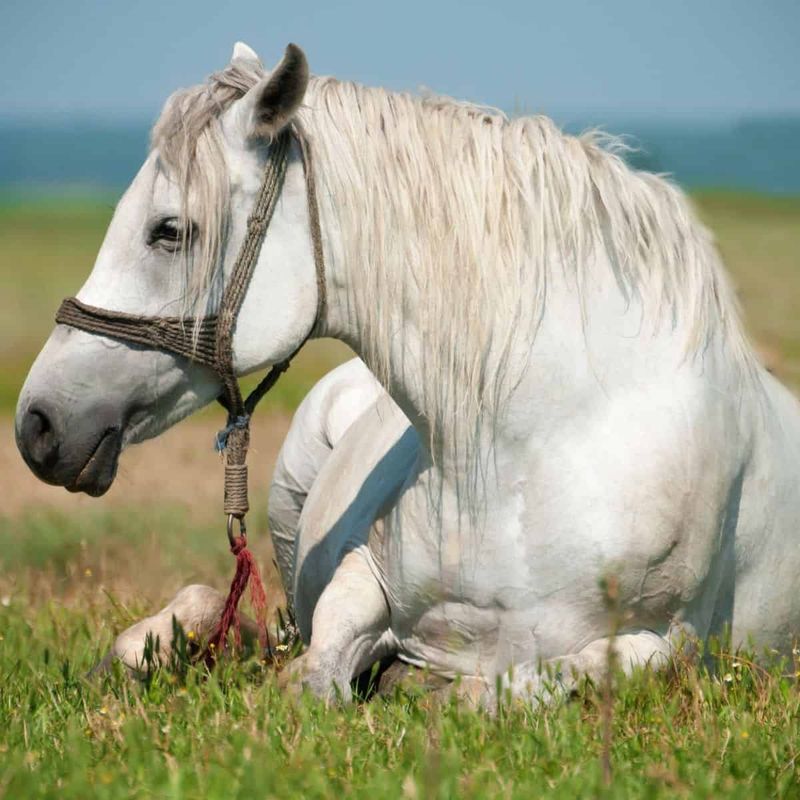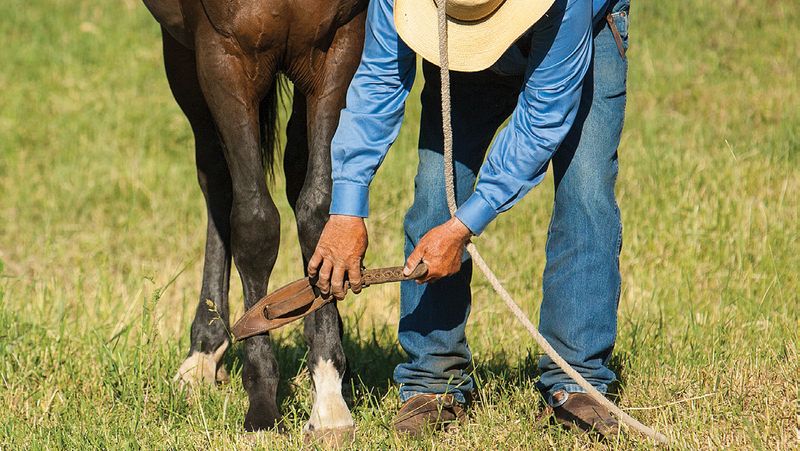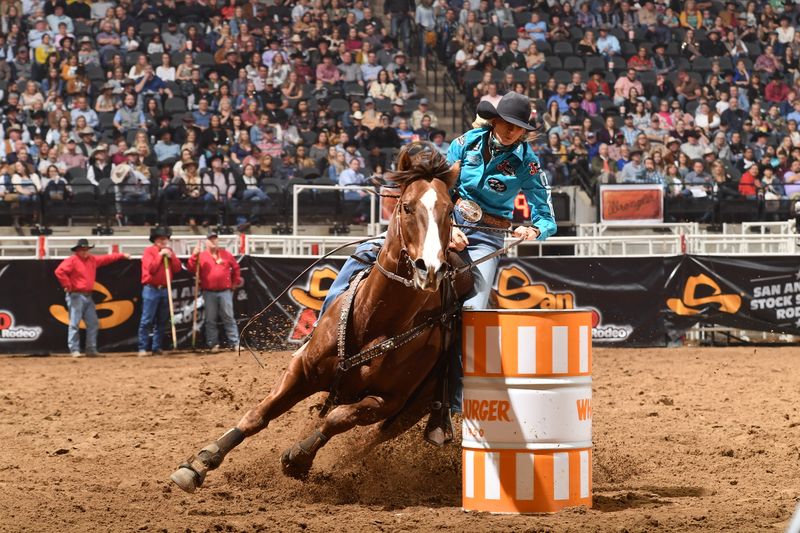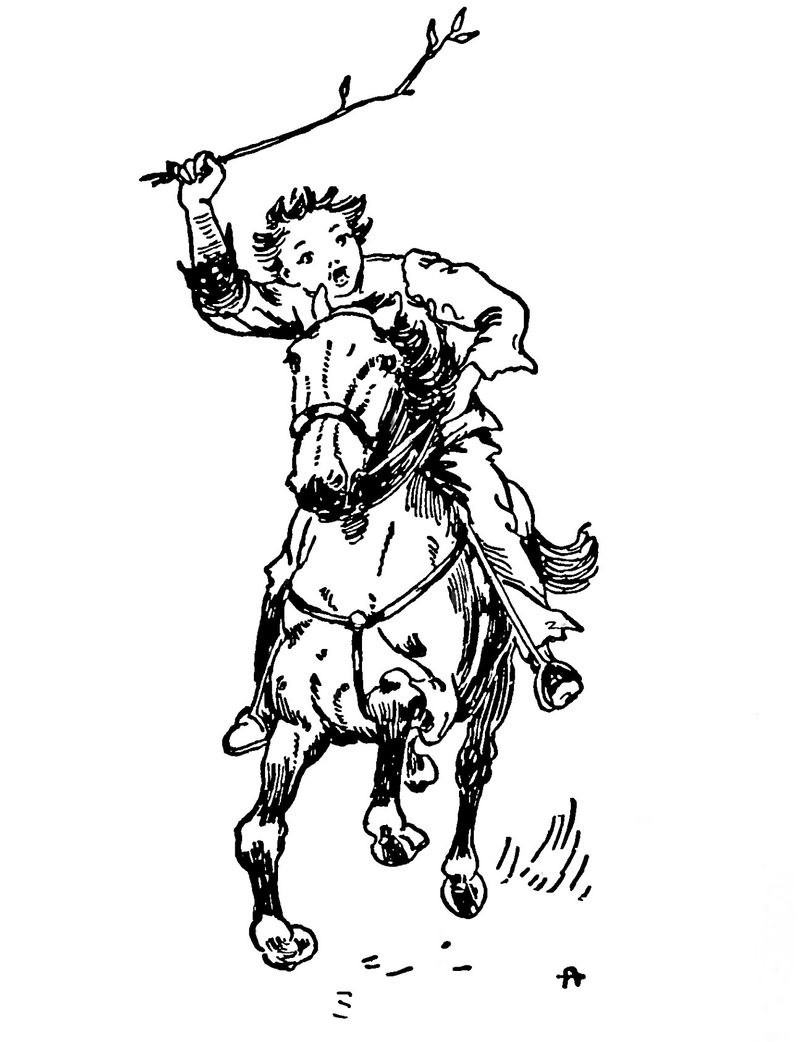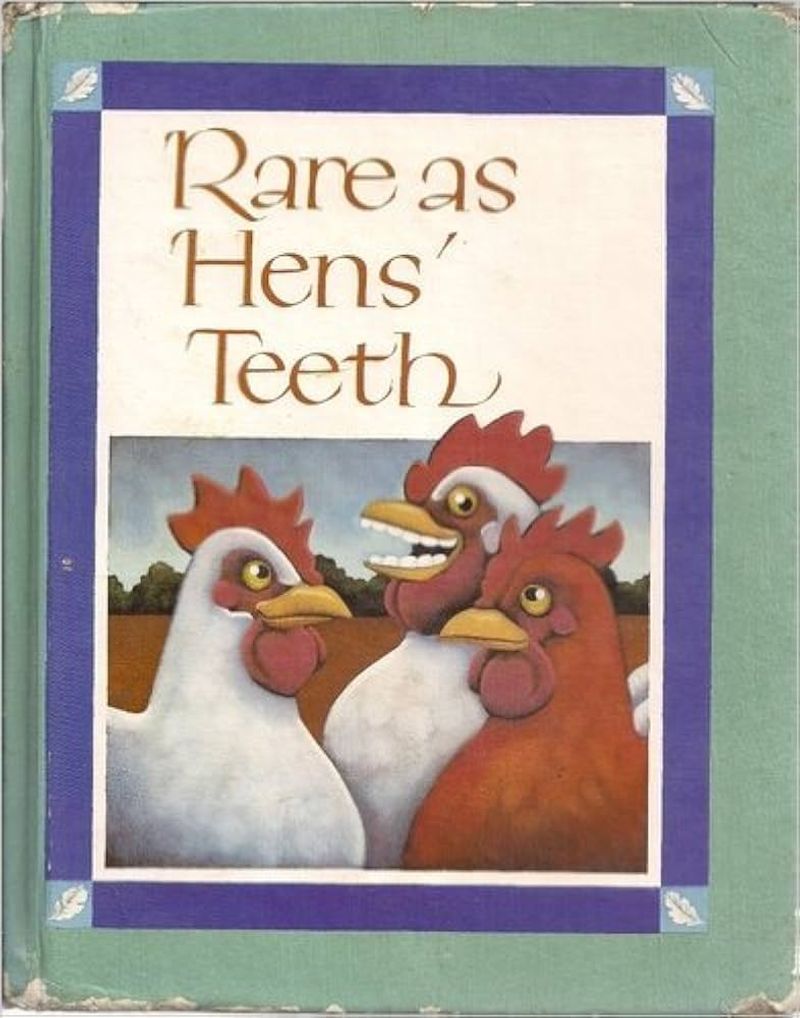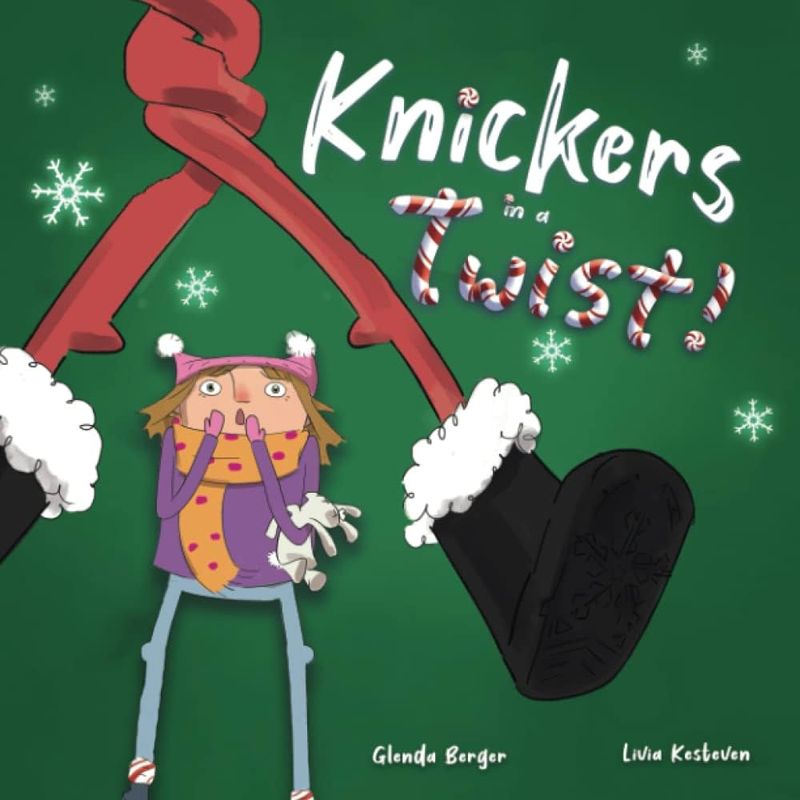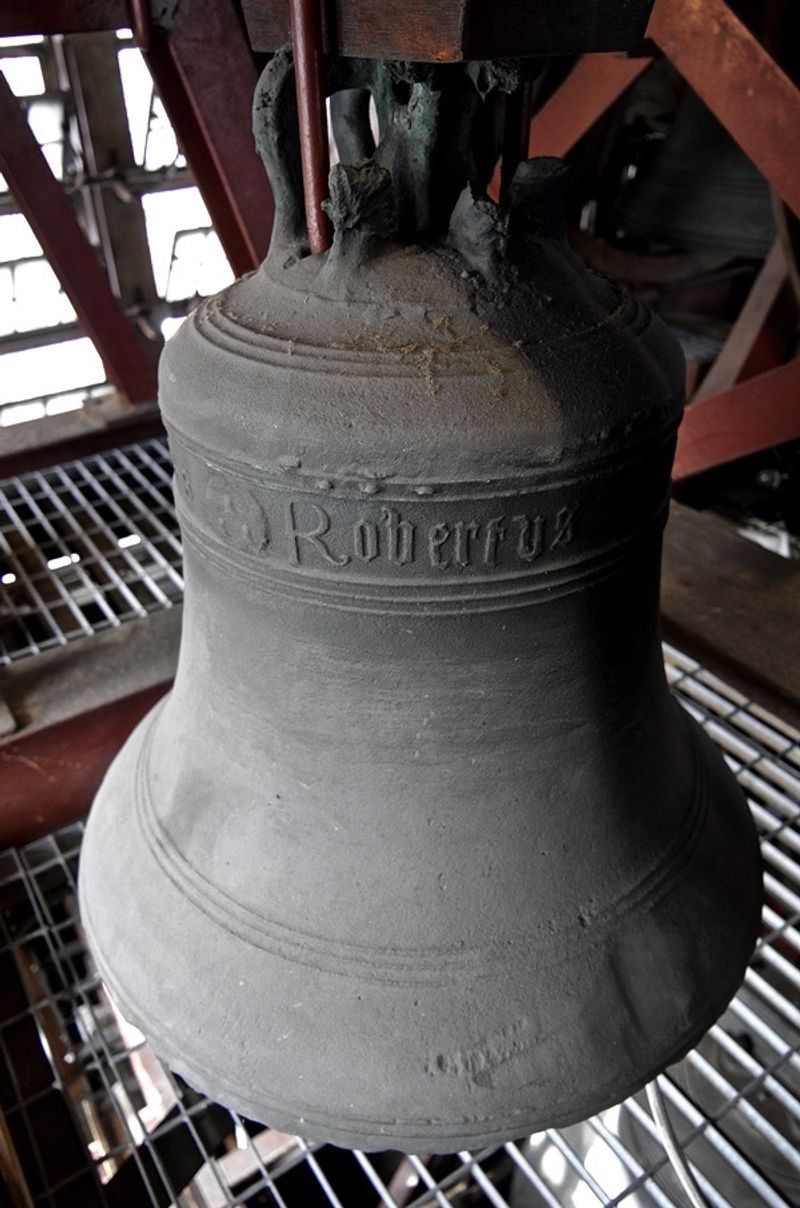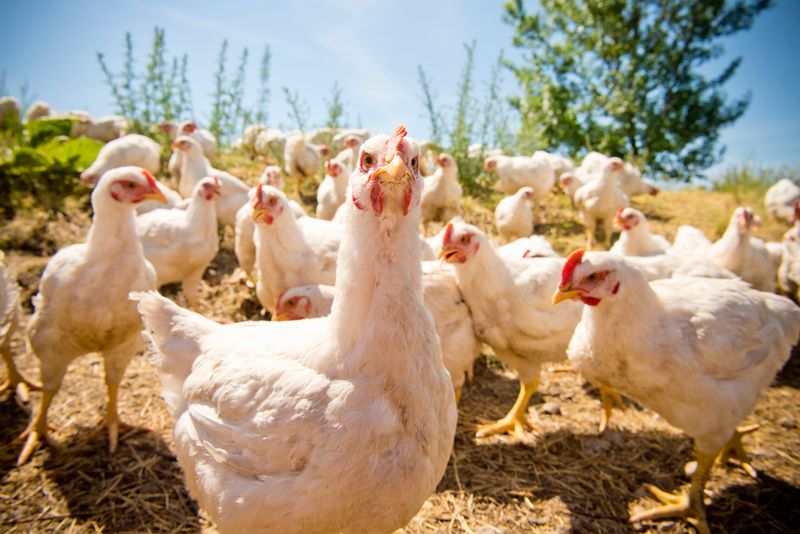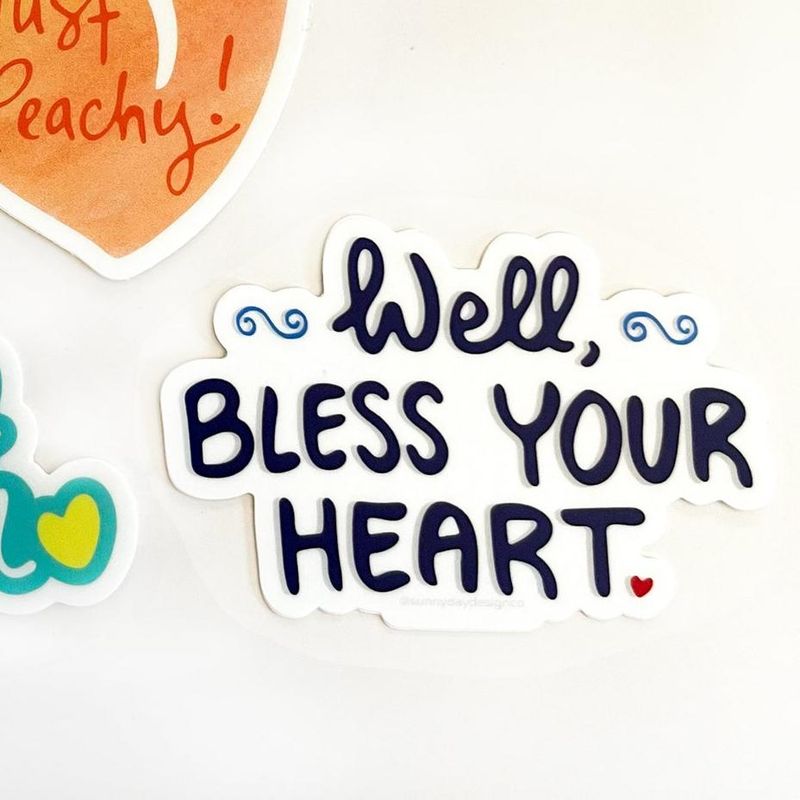Your grandparents had a way with words—colorful, clever, and often confusing. From barnyard metaphors to Depression-era wisdom, these old-school sayings were everyday language for them, even if they sound like riddles now. But behind each quirky phrase is a story, a lesson, or just some homespun humor that still rings true today. Here are 25 classic sayings from the past—and what they really meant.
1. Don’t take any wooden nickels.
In an era where scams and swindles lurked at every corner, “don’t take any wooden nickels” was more than just advice—it was a mantra. This phrase was often passed down from cautious parents to their curious children as they ventured into the world, especially during the Great Depression when money was tight. Wooden nickels, once used as promotional tokens, symbolize bad deals.
The expression served as a reminder to remain vigilant and discerning. Even today, its relevance persists in a world brimming with digital frauds and empty promises.
2. He’s all hat and no cattle.
Out on the open ranges, appearances could be deceiving. “He’s all hat and no cattle” captures this notion perfectly. This saying, often whispered among ranchers and cowboys, describes someone who talks big but lacks the substance to back it up.
Wearing a wide-brimmed hat might make one appear like a seasoned rancher, but without cattle, it’s just for show. Such colorful language was common in rural areas where actions spoke louder than words.
Even today, this phrase finds its place in boardrooms and social circles, highlighting pretension over reality.
3. That dog won’t hunt.
In hunting culture, a reliable dog is essential. “That dog won’t hunt” emerged as a metaphor for ideas or plans that simply won’t work. When a dog refuses to do its job, the hunt is doomed.
This colloquialism became a staple for dismissing faulty logic or ineffective strategies. It reflected the pragmatic mindset of those who depended on both man and beast for their livelihood.
Today, it’s a succinct way to critique proposals or concepts that fail to inspire confidence or feasibility.
4. You look like you’ve been rode hard and put up wet.
Derived from horseback riding, this saying paints a vivid picture of exhaustion. After a long day, a horse ridden hard and put up wet would be in poor condition. Used to describe someone looking haggard or worn out, it’s not a flattering comment.
The phrase gained popularity among equestrians and farmers alike, where understanding animal care was crucial.
In modern times, it humorously captures the look of someone after a long day or rough night, blending equine care with human experience.
5. Make hay while the sun shines.
With roots in agriculture, “make hay while the sun shines” is all about seizing the moment. Haymaking required dry weather, so farmers had to work swiftly. This saying underscores the importance of acting during favorable conditions.
Passed through generations, it emphasizes opportunity and timing. In the business world or personal endeavors, this wisdom remains pertinent.
The phrase reminds us to be proactive and take advantage of good circumstances before they disappear like fleeting sunshine on a summer’s day.
6. Hold your horses.
The phrase “hold your horses” invites patience and restraint. Originating from the days when horses were the primary mode of transport, it urged riders to pause or slow down.
Often used by horse handlers or coach drivers, the saying became synonymous with maintaining control and composure.
In today’s fast-paced world, it serves as a gentle reminder to slow down and think before acting, whether at work, home, or in traffic. It’s a timeless appeal for calm in the face of hurry.
7. Don’t let the tail wag the dog.
“Don’t let the tail wag the dog” warns against letting minor details control larger decisions. In a literal sense, it’s absurd for a tail to dictate a dog’s actions. Metaphorically, it speaks to maintaining perspective.
This phrase became a staple in discussions about priorities, particularly in business and politics.
By focusing on what truly matters, it teaches us to avoid being sidetracked by trivial matters. It’s a call for clarity amid chaos, ensuring the main objectives remain the focus.
8. Colder than a well digger’s behind.
When temperatures plummet, this phrase captures the chill with earthy humor. “Colder than a well digger’s behind” paints a vivid, if not crude, picture of extreme cold. Well diggers, working deep in the earth, faced harsh conditions.
This saying offers a humorous twist to describe icy weather, often shared with a chuckle among those enduring harsh winters.
Its charm lies in its exaggeration, bringing a smile even when the weather is harshest. It’s a phrase that warms the heart, if not the body.
9. A penny for your thoughts.
Curiosity about another’s thoughts is timeless, captured by “a penny for your thoughts.” This gentle inquiry invites someone to share what’s on their mind. In an age when conversation was an art, it encouraged dialogue.
Offering a penny symbolizes the modest price of insight and connection.
While its origins are unclear, this phrase survives as a charming way to break a thoughtful silence. It promotes sharing and understanding in relationships, making it a classic in communication.
10. This ain’t my first rodeo.
Confidence meets experience in “this ain’t my first rodeo.” Often uttered with a touch of sass, it asserts one’s familiarity with a situation. Rodeos, with their mix of skill and bravado, provide the perfect backdrop for this saying.
When facing challenges, it’s a way to declare competence and readiness.
Beyond the cowboy culture, it’s used in various settings, from boardrooms to workshops, reminding others of one’s expertise and resilience.
11. If wishes were horses, beggars would ride.
“If wishes were horses, beggars would ride” serves as a poetic reminder that wishing alone isn’t enough. In a world where dreams are abundant but resources scarce, this saying highlights the gap between desire and reality.
It’s a caution against relying solely on hope without action. Originating in a time when horses were a symbol of wealth and mobility, it underscores the value of effort.
Even today, it encourages us to pair dreams with determination to achieve our goals.
12. He’s got a screw loose.
In the mechanical age, “he’s got a screw loose” likened eccentricity to faulty machinery. When a screw is loose, things don’t function properly. Used to describe someone behaving unusually, it offers a colorful take on mental quirks.
This phrase reflected a growing awareness of mental health, wrapped in humor.
Though light-hearted, it also touches on the complexity of human behavior, inviting both laughter and empathy. It endures as a way to comment on oddities with a smile.
13. Scarce as hen’s teeth.
“Scarce as hen’s teeth” is a playful way to describe rarity. Since hens don’t have teeth, the phrase humorously exaggerates the scarcity of something. Often used in rural communities, it highlights the absurdity of seeking the impossible.
Its charm lies in its simple imagery and tongue-in-cheek delivery.
For generations, it’s been a go-to expression for emphasizing rarity, from missing tools to elusive opportunities.
14. Knee-high to a grasshopper.
Fondly recalling childhood, “knee-high to a grasshopper” describes being very young or small. This endearing phrase paints a whimsical picture of youthful innocence and growth.
Often used by grandparents reminiscing about their younger days or grandchildren’s antics, it captures the essence of nostalgia.
Its playful imagery keeps it alive in family stories and conversations, celebrating the joy of growing up and the passage of time.
15. You can’t make a silk purse out of a sow’s ear.
This saying delivers a lesson in realism: “you can’t make a silk purse out of a sow’s ear” insists on accepting limitations. Originating from a time when transformation required skill, it warns against unrealistic expectations.
The image of a coarse pig’s ear turning into fine silk is both amusing and instructional.
Today, it reminds us to work with what we have, valuing authenticity over unattainable perfection.
16. Don’t get your knickers in a twist.
A touch of British charm surfaces in “don’t get your knickers in a twist.” It’s a cheeky way to urge someone not to get upset over trivial matters. This phrase, with its humorous imagery, lightens tense situations.
Part of its appeal lies in its playful reference to underwear, making it memorable and effective.
In our fast-paced world, it remains a gentle nudge to maintain perspective and keep calm.
17. She’s walking on sunshine.
Long before it became a song lyric, “she’s walking on sunshine” captured sheer happiness. This phrase paints a picture of someone radiating joy and positivity, akin to a sunlit stroll.
It’s an expression of uncontainable excitement, often shared in moments of good news or celebration.
The vivid imagery and buoyant tone make it a favorite for describing elation and uplifted spirits.
18. I’ll be there with bells on.
An eager acceptance of an invitation, “I’ll be there with bells on” promises enthusiasm and eagerness. The saying likely originated from travelers who adorned their horses with bells, signifying readiness and cheer.
It conveys not just presence but spirited participation, making it a lively addition to RSVPs.
Today, it’s a way to confirm attendance with a flourish, adding a personal touch to commitments.
19. Quit your bellyaching.
“Quit your bellyaching” commands a halt to complaints with no-nonsense flair. The phrase, with its vivid imagery, evokes the sound of grumbling bellies and dissatisfied voices.
Often used by parents or authority figures, it insists on resilience and gratitude.
While its tone is direct, it encourages a focus on solutions over problems, fostering a can-do attitude in the face of adversity.
20. Don’t count your chickens before they hatch.
Practical wisdom shines in “don’t count your chickens before they hatch.” This saying advises against premature optimism, rooted in the farming reality that not all eggs yield chicks.
It teaches patience and caution in planning, ensuring success isn’t assumed before it’s secured.
In various walks of life, it remains relevant, reminding us to wait for results before celebrating.
21. Bless your heart.
In the South, “bless your heart” walks a fine line between kindness and condescension. Depending on context and tone, it can express genuine sympathy or veiled criticism.
Its charm lies in its versatility, often used in family gatherings or small-town gossip.
The phrase’s nuanced nature makes it an intriguing staple of Southern dialect, fostering connection or gentle rebuke.
22. The apple doesn’t fall far from the tree.
Family traits are celebrated in “the apple doesn’t fall far from the tree.” This saying highlights the similarities between parents and children, often in character or behavior.
Rooted in the image of an apple staying close to its tree, it’s a tribute to heritage and influence.
Whether for praise or critique, it underscores the enduring bond between generations, making it a staple in familial discussions.
23. Like a bull in a china shop.
Chaos incarnate, “like a bull in a china shop” vividly describes clumsiness. Envisioning a bull amidst fragile china, it warns of impending disaster. This saying highlights the need for care and finesse.
Born from a time when china shops were cherished, it’s a humorous yet cautionary image.
In modern usage, it describes those who inadvertently cause disruption, emphasizing the value of subtlety.
24. He’s got ants in his pants.
Restlessness finds expression in “he’s got ants in his pants.” This phrase describes someone unable to stay still, as if ants are provoking them. It’s a playful way to comment on fidgety behavior.
Common among parents, it captures the energy and impatience of youth.
Its humor and imagery make it a beloved saying, especially when dealing with lively children or animated adults.
25. More than you can shake a stick at.
Abundance is exaggerated in “more than you can shake a stick at.” The origins of why one would shake a stick remain unclear, but the meaning is clear: a surplus.
This saying adds humor to situations of plenty, from harvests to collections.
Its whimsical nature keeps it alive, providing a colorful way to describe excess in daily life.

